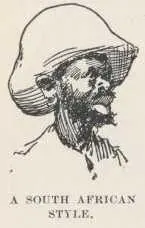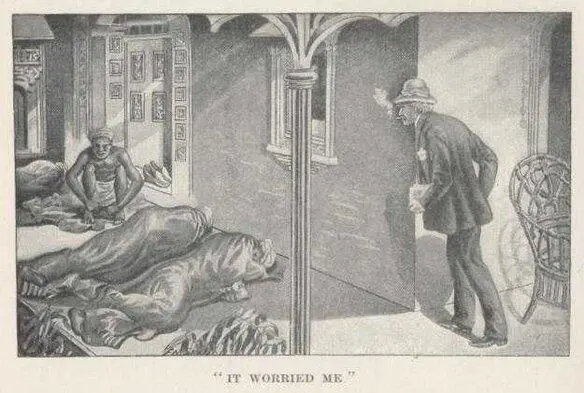Mark Twain - Following the Equator
Здесь есть возможность читать онлайн «Mark Twain - Following the Equator» весь текст электронной книги совершенно бесплатно (целиком полную версию без сокращений). В некоторых случаях можно слушать аудио, скачать через торрент в формате fb2 и присутствует краткое содержание. Год выпуска: 2004, Жанр: Классическая проза, Юмористическая проза, на английском языке. Описание произведения, (предисловие) а так же отзывы посетителей доступны на портале библиотеки ЛибКат.
- Название:Following the Equator
- Автор:
- Жанр:
- Год:2004
- ISBN:нет данных
- Рейтинг книги:3 / 5. Голосов: 1
-
Избранное:Добавить в избранное
- Отзывы:
-
Ваша оценка:
- 60
- 1
- 2
- 3
- 4
- 5
Following the Equator: краткое содержание, описание и аннотация
Предлагаем к чтению аннотацию, описание, краткое содержание или предисловие (зависит от того, что написал сам автор книги «Following the Equator»). Если вы не нашли необходимую информацию о книге — напишите в комментариях, мы постараемся отыскать её.
Following the Equator — читать онлайн бесплатно полную книгу (весь текст) целиком
Ниже представлен текст книги, разбитый по страницам. Система сохранения места последней прочитанной страницы, позволяет с удобством читать онлайн бесплатно книгу «Following the Equator», без необходимости каждый раз заново искать на чём Вы остановились. Поставьте закладку, и сможете в любой момент перейти на страницу, на которой закончили чтение.
Интервал:
Закладка:

It appears from Sleeman that in India the occupation of elephant-driver is confined to Mohammedans. I wonder why that is. The water-carrier ('bheestie') is a Mohammedan, but it is said that the reason of that is, that the Hindoo's religion does not allow him to touch the skin of dead kine, and that is what the water-sack is made of; it would defile him. And it doesn't allow him to eat meat; the animal that furnished the meat was murdered, and to take any creature's life is a sin. It is a good and gentle religion, but inconvenient.
A great Indian river, at low water, suggests the familiar anatomical picture of a skinned human body, the intricate mesh of interwoven muscles and tendons to stand for water-channels, and the archipelagoes of fat and flesh inclosed by them to stand for the sandbars. Somewhere on this journey we passed such a river, and on a later journey we saw in the Sutlej the duplicate of that river. Curious rivers they are; low shores a dizzy distance apart, with nothing between but an enormous acreage of sand-flats with sluggish little veins of water dribbling around amongst them; Saharas of sand, smallpox-pitted with footprints punctured in belts as straight as the equator clear from the one shore to the other (barring the channel-interruptions)—a dry-shod ferry, you see. Long railway bridges are required for this sort of rivers, and India has them. You approach Allahabad by a very long one. It was now carrying us across the bed of the Jumna, a bed which did not seem to have been slept in for one while or more. It wasn't all river-bed—most of it was overflow ground.
Allahabad means "City of God." I get this from the books. From a printed curiosity—a letter written by one of those brave and confident Hindoo strugglers with the English tongue, called a "babu"—I got a more compressed translation: "Godville." It is perfectly correct, but that is the most that can be said for it.
We arrived in the forenoon, and short-handed; for Satan got left behind somewhere that morning, and did not overtake us until after nightfall. It seemed very peaceful without him. The world seemed asleep and dreaming.
I did not see the native town, I think. I do not remember why; for an incident connects it with the Great Mutiny, and that is enough to make any place interesting. But I saw the English part of the city. It is a town of wide avenues and noble distances, and is comely and alluring, and full of suggestions of comfort and leisure, and of the serenity which a good conscience buttressed by a sufficient bank account gives. The bungalows (dwellings) stand well back in the seclusion and privacy of large enclosed compounds (private grounds, as we should say) and in the shade and shelter of trees. Even the photographer and the prosperous merchant ply their industries in the elegant reserve of big compounds, and the citizens drive in there upon their business occasions. And not in cabs—no; in the Indian cities cabs are for the drifting stranger; all the white citizens have private carriages; and each carriage has a flock of white-turbaned black footmen and drivers all over it. The vicinity of a lecture-hall looks like a snowstorm,—and makes the lecturer feel like an opera. India has many names, and they are correctly descriptive. It is the Land of Contradictions, the Land of Subtlety and Superstition, the Land of Wealth and Poverty, the Land of Splendor and Desolation, the Land of Plague and Famine, the Land of the Thug and the Poisoner, and of the Meek and the Patient, the Land of the Suttee, the Land of the Unreinstatable Widow, the Land where All Life is Holy, the Land of Cremation, the Land where the Vulture is a Grave and a Monument, the Land of the Multitudinous Gods; and if signs go for anything, it is the Land of the Private Carriage.
In Bombay the forewoman of a millinery shop came to the hotel in her private carriage to take the measure for a gown—not for me, but for another. She had come out to India to make a temporary stay, but was extending it indefinitely; indeed, she was purposing to end her days there. In London, she said, her work had been hard, her hours long; for economy's sake she had had to live in shabby rooms and far away from the shop, watch the pennies, deny herself many of the common comforts of life, restrict herself in effect to its bare necessities, eschew cabs, travel third-class by underground train to and from her work, swallowing coal-smoke and cinders all the way, and sometimes troubled with the society of men and women who were less desirable than the smoke and the cinders. But in Bombay, on almost any kind of wages, she could live in comfort, and keep her carriage, and have six servants in place of the woman-of-all-work she had had in her English home. Later, in Calcutta, I found that the Standard Oil clerks had small one-horse vehicles, and did no walking; and I was told that the clerks of the other large concerns there had the like equipment. But to return to Allahabad.
I was up at dawn, the next morning. In India the tourist's servant does not sleep in a room in the hotel, but rolls himself up head and ears in his blanket and stretches himself on the veranda, across the front of his master's door, and spends the night there. I don't believe anybody's servant occupies a room. Apparently, the bungalow servants sleep on the veranda; it is roomy, and goes all around the house. I speak of menservants; I saw none of the other sex. I think there are none, except child-nurses. I was up at dawn, and walked around the veranda, past the rows of sleepers. In front of one door a Hindoo servant was squatting, waiting for his master to call him. He had polished the yellow shoes and placed them by the door, and now he had nothing to do but wait. It was freezing cold, but there he was, as motionless as a sculptured image, and as patient. It troubled me. I wanted to say to him, "Don't crouch there like that and freeze; nobody requires it of you; stir around and get warm." But I hadn't the words.

I thought of saying 'jeldy jow', but I couldn't remember what it meant, so I didn't say it. I knew another phrase, but it wouldn't come to my mind. I moved on, purposing to dismiss him from my thoughts, but his bare legs and bare feet kept him there. They kept drawing me back from the sunny side to a point whence I could see him. At the end of an hour he had not changed his attitude in the least degree. It was a curious and impressive exhibition of meekness and patience, or fortitude or indifference, I did not know which. But it worried me, and it was spoiling my morning. In fact, it spoiled two hours of it quite thoroughly. I quitted this vicinity, then, and left him to punish himself as much as he might want to. But up to that time the man had not changed his attitude a hair. He will always remain with me, I suppose; his figure never grows vague in my memory. Whenever I read of Indian resignation, Indian patience under wrongs, hardships, and misfortunes, he comes before me. He becomes a personification, and stands for India in trouble. And for untold ages India in trouble has been pursued with the very remark which I was going to utter but didn't, because its meaning had slipped me: "Jeldy jow!" ("Come, shove along!")
Why, it was the very thing.
In the early brightness we made a long drive out to the Fort. Part of the way was beautiful. It led under stately trees and through groups of native houses and by the usual village well, where the picturesque gangs are always flocking to and fro and laughing and chattering; and this time brawny men were deluging their bronze bodies with the limpid water, and making a refreshing and enticing show of it; enticing, for the sun was already transacting business, firing India up for the day. There was plenty of this early bathing going on, for it was getting toward breakfast time, and with an unpurified body the Hindoo must not eat.
Читать дальшеИнтервал:
Закладка:
Похожие книги на «Following the Equator»
Представляем Вашему вниманию похожие книги на «Following the Equator» списком для выбора. Мы отобрали схожую по названию и смыслу литературу в надежде предоставить читателям больше вариантов отыскать новые, интересные, ещё непрочитанные произведения.
Обсуждение, отзывы о книге «Following the Equator» и просто собственные мнения читателей. Оставьте ваши комментарии, напишите, что Вы думаете о произведении, его смысле или главных героях. Укажите что конкретно понравилось, а что нет, и почему Вы так считаете.











